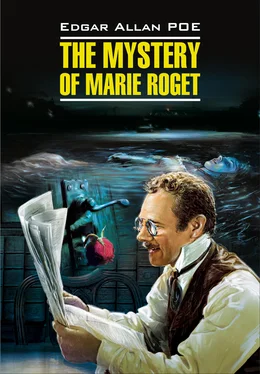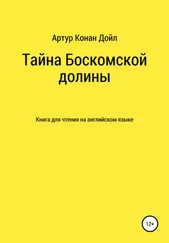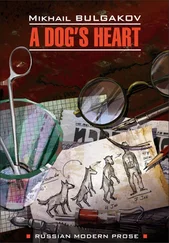When I said these words, I of course expected some lively sally from Bedloe in reply; but, to my astonishment, he hesitated, trembled, became fearfully pallid, and remained silent. I looked towards Templeton. He sat erect and rigid in his chair – his teeth chattered, and his eyes were starting from their sockets. “Proceed!” he at length said hoarsely to Bedloe.
“For many minutes,” continued the latter, “my sole sentiment – my sole feeling – was that of darkness and nonentity, with the consciousness of death. At length, there seemed to pass a violent and sudden shock through my soul, as if of electricity. With it came the sense of elasticity and of light. This latter I felt – not saw. In an instant I seemed to rise from the ground. But I had no bodily, no visible, audible, or palpable presence. The crowd had departed. The tumult had ceased. The city was in comparative repose. Beneath me lay my corpse, with the arrow in my temple, the whole head greatly swollen and disfigured. But all these things I felt – not saw. I took interest in nothing. Even the corpse seemed a matter in which I had no concern. Volition I had none, but appeared to be impelled into motion, and flitted buoyantly out of the city, retracing the circuitous path by which I had entered it. When I had attained that point of the ravine in the mountains at which I had encountered the hyena, I again experienced a shock as of a galvanic battery; the sense of weight, of volition, of substance, returned. I became my original self, and bent my steps eagerly homewards – but the past had not lost the vividness of the real – and not now, even for an instant, can I compel my understanding to regard it as a dream.”
“Nor was it,” said Templeton, with an air of deep solemnity, “yet it would be difficult to say how otherwise it should be termed. Let us suppose only, that the soul of the man of to-day is upon the verge of some stupendous psychal discoveries. Let us content ourselves with this supposition. For the rest I have some explanation to make. Here is a water-colour drawing, which I should have shown you before, but which an unaccountable sentiment of horror has hitherto prevented me from showing.”
We looked at the picture which he presented. I saw nothing in it of an extraordinary character; but its effect upon Bedloe was prodigious. He nearly fainted as he gazed. And yet it was but a miniature portrait – a miraculously accurate one, to be sure – of his own very remarkable features. At least this was my thought as I regarded it.
“You will perceive,” said Templeton, “the date of this picture – it is here, scarcely visible, in this corner – 1780. In this year was the portrait taken. It is the likeness of a dead friend – a Mr. Oldeb – to whom I became much attached at Calcutta, during the administration of Warren Hastings [148] Warren Hastings – Уоррен Гастингс (1732–1818), британский государственный деятель, первый генерал-губернатор Индии (1773–1785)
. I was then only twenty years old. When I first saw you, Mr. Bedloe, at Saratoga, it was the miraculous similarity which existed between yourself and the painting which induced me to accost you, to seek your friendship, and to bring about those arrangements which resulted in my becoming your constant companion. In accomplishing this point I was urged partly, and perhaps principally, by a regretful memory of the deceased, but also, in part, by an uneasy and not altogether horrorless curiosity respecting yourself.
“In your detail of the vision which presented itself to you amid the hills, you have described with the minutest accuracy, the Indian city of Benares upon the holy river. The riots, the combats, the massacre, were the actual events of the insurrection of Cheyte Sing, which took place in 1780, when Hastings was put in imminent peril of his life. The man escaping by the string of turbans was Cheyte Sing himself. The party in the kiosk were sepoys and British officers headed by Hastings. Of this party I was one, and did all I could to prevent the rash and fatal sally of the officer who fell, in the crowded alleys, by the poisoned arrow of a Bengalee. That officer was my dearest friend. It was Oldeb. You will perceive by these manuscripts” (here the speaker produced a notebook in which several pages appeared to have been freshly written) “that at the very period in which you fancied these things amid the hills, I was engaged in detailing them upon paper here at home.”
In about a week after this conversation, the following paragraphs appeared in a Charlottesville paper:
“We have the painful duty of announcing the death of Mr. Augustus Bedlo, a gentleman whose amiable manners and many virtues have long endeared him to the citizens of Charlottesville.
“Mr. B., for some years past, has been subject to neuralgia, which has often threatened to terminate fatally; but this can be regarded only as the mediate cause of his decease. The approximate cause was one of especial singularity. In an excursion to the Ragged Mountains, a few days since, a slight cold and fever were contracted, attended with great determination of blood to the head. To relieve this, Dr. Tempieton resorted to topical bleeding. Leeches were applied to the temples. In a fearfully brief period the patient died [149] In a fearfully brief period the patient died – ( уст. ) Пациент скоропостижно скончался
, when it appeared that, in the jar containing the leeches, had been introduced, by accident, one of the venomous vermicular sangsues which are now and then found in the neighbouring ponds. This creature fastened itself upon a small artery in the right temple. Its close resemblance to the medicinal leech caused the mistake to be overlooked until too late.
“N.B. – The poisonous sangsue of Charlottesville may always be distinguished from the medicinal leech by its blackness, and especially by its writhing or vermicular motions which very nearly resembles those of a snake.”
I was speaking with the editor of the paper in question, upon the topic of this remarkable accident, when it occurred to me to ask how it happened that the name of the deceased had been given as Bedlo.
“I presume,” said I, “you have authority for this spelling, but I have always supposed the name to be written with an e at the end.”
“Authority? – no,” he replied. “It is a mere typographical error. The name is Bedlo with an e , all the world over, and I never knew it to be spelt otherwise in my life.”
“Then,” said I mutteringly, as I turned upon my heel, “then indeed has it come to pass that one truth is stranger than any fiction – for Bedlo without the e , what is it but Oldeb conversed? And this man tells me it is a typographical error.”
This folio of four pages, happy work
Which not even poets criticise
October 1844
It was a chilly November afternoon. I had just consummated an unusually hearty dinner, of which the dyspeptic truffe formed not the least important item, and was sitting alone in the dining-room, with my feet upon the fender, and at my elbow a small table which I had rolled up to the fire, and upon which were some apologies for dessert, with some miscellaneous bottles of wine, spirit, and liqueur. In the morning I had been reading Glover [150] Glover – Джон Гловер (1732–1797), американский генерал
’s Leonidas , Wilkie’s Epigoniad , Lamartine [151] Lamartine – Альфонс Ламартин (1790–1869), французский поэт-романтик, политический деятель
’s Pilgrimage , Barlow’s Columbiad , Tuckermann’s Sicily , and Griswold’s Curiosities ; I am willing to confess, therefore, that I now felt a little stupid. I made effort to arouse myself by aid of frequent Lafitte, and, all failing, I betook myself to a stray newspaper in despair. Having carefully perused the column of “houses to let,” and the column of “dogs lost,” and then the two columns of “wives and apprentices runaway,” I attacked with great resolution the editorial matter, and, reading it from beginning to end without understanding a syllable, conceived the possibility of its being Chinese, and so re-read it from the end to the beginning, but with no more satisfactory result. I was about throwing away, in disgust, when I felt my attention somewhat aroused by the paragraph which follows:
Читать дальше
Конец ознакомительного отрывка
Купить книгу












